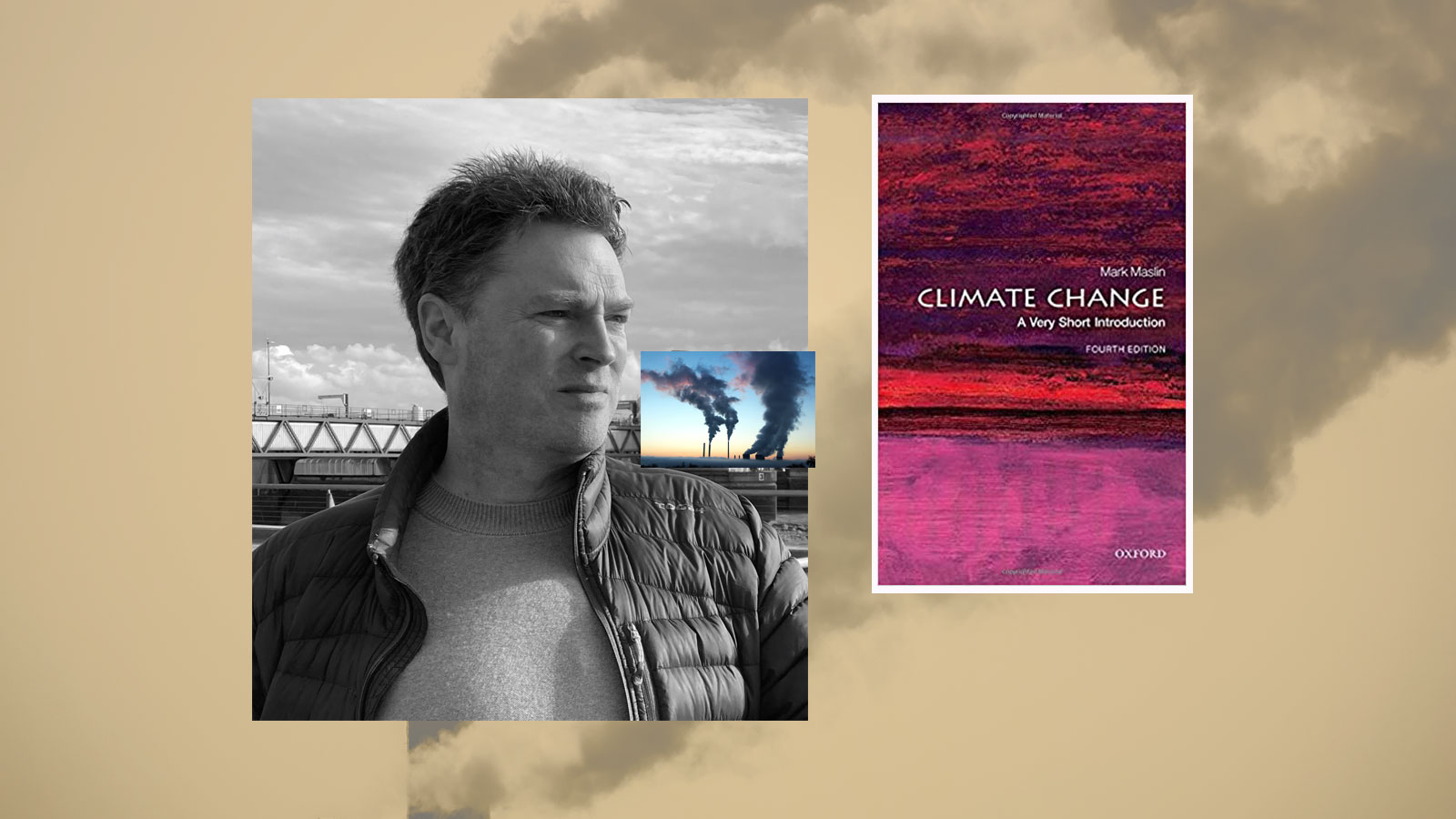Teaching climate politics means teaching climate change, at times a daunting subject for non-science students. Teaching climate change, therefore, means choosing the right book by the right person. Enter Mark Maslin, Professor of Earth System Science at University College London and the author of Climate Change: A Very Short Introduction, a slim volume with a big punch now in its fourth edition.
Part of Oxford University Press’s Very Short Introduction (VSI) series, Climate Change runs just 166 pages, making it, well, very short. But it’s also authoritative, accessible, and, at less than 12 bucks, a steal.
(Full disclosure: I wrote the VSI to Canada in 2020, but I have never worked with, nor have I ever met, Professor Maslin.)
Maslin starts from the premise that global climate change is one of the “defining challenges” of our time and that “what we do now to cut greenhouse gas emissions” matters a great deal to our collective future (p.ix). Across nine brisk chapters – from “What is climate change?” to “Changing our future” – he covers an astonishing number of topics, starting with the Earth’s natural greenhouse and some of the early scientists who discovered it.
In this edition, Eunice Foote – the nineteenth century American scientist and women’s rights advocate – gets a shout-out for her 1856 paper demonstrating the ability of CO2 to trap heat. “An atmosphere of that gas,” she wrote, “would give to our Earth a higher temperature” (p.12). Maslin also recognizes the efforts of Extinction Rebellion, a climate protest group committed to non-violent civil disobedience with chapters literally around the world, including in my neck of the woods, in the small Canadian province of New Brunswick, north of Maine. A clearly inspired Maslin notes that “over 1,400 local governments and over 35 countries have made climate emergency declarations” (p.25).
A scientist, Maslin has the enviable ability to render comprehensible the sometimes incomprehensible, from general circulation models (GCMs), representative concentration pathways (RCPs), and ocean acidification (OA) to the scientific method itself. Self-questioning, he writes, “is the core strength of science,” something that climate contrarians either can’t get their mitts around or refuse to concede (p.42).
Maslin is also a lovely writer with a dry sense of humor, not a bad thing to have in the world of climate science. When noting the difficulties associated with predicting the future climate, he observes that, “Of all the systems that we are trying to model into the future, humanity is by far the most complicated and unpredictable” (p.50). Novelist Kurt Vonnegut said much the same thing about humanity.
Meanwhile, solar radiation management – or the large-scale attempt to reduce the amount of sunlight hitting the Earth by, for example, launching mirrors into space – is like, Maslin jokes, “something out of a bad Hollywood B-movie” (p.145). Perhaps, but the proponents of solar radiation management aren’t a bunch of Dr. Strangeloves; in fact, they may be the realists in the room who see our options dwindling. As a student once asked me, when did it become reasonable to dim the sun?
University instructors teaching a first-year course in the politics of climate change will appreciate this book for its ambitious sweep and its accessible writing. My students like it too, judging by their course evaluations: “Great textbook, sir”; “Even my roommate read it and she didn’t have to”; and, my favorite, “It’s a pocket bible for our times.”
Our times are dark, but Climate Change: A Very Short Introduction is hopeful. Indeed, this edition ends with the pandemic and what Maslin calls its “major lesson”: Limited government and free markets failed to protect us. “What we need,” he insists, “is a new era of planetary stewardship led by governments and underpinned by new economic theories” (p.150). It’s an ambitious and visionary agenda, but to riff on my student who called this book a bible, “Where there is no vision, the people perish” (Proverbs 29:18).
Donald Wright teaches political science, including the politics of climate change, at the University of New Brunswick.
Source link


